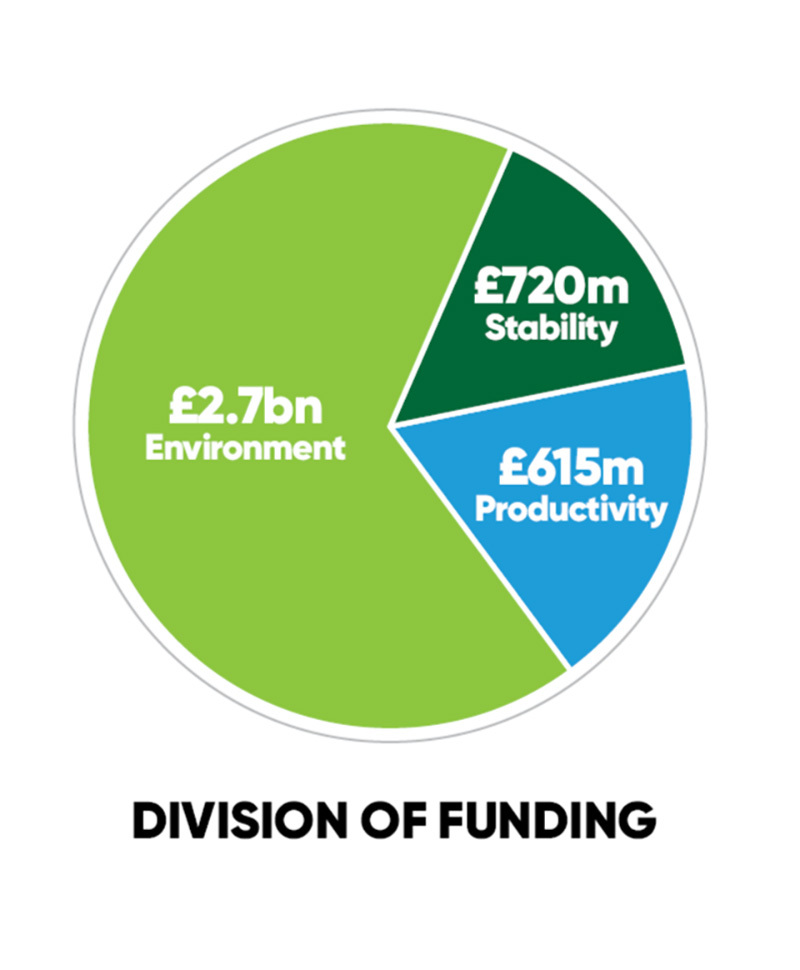To meet the government’s food security, environmental and economic targets, long-term public investment in productivity measures is crucial to drive confidence as well as develop and mobilise the technical solutions that will underpin global competitiveness in the agricultural sector.
Investing to compete
Competitor nations invest significantly in innovation and productivity. To remain competitive within global markets equivalent investment must be provided at home.
If the next government is to promote a rapid transformation of England’s agricultural sector, similar levels of investment to those found in other G7 countries, trade competitors and European Union states is a prerequisite.
Public sector support can help mobilise a joined-up research and development, knowledge exchange and investment strategy.
This would help to deliver and scale-up productivity gains in the relatively short timescales required to meet the environmental and economic ambitions.
There has been significant uptake of existing productivity grants, which enable investment in equipment, buildings, technology, advice, diversification and cooperation.
All of this leads to an increase in productivity, boosts environmental sustainability, and allows for better management of on-farm resources and improved animal health and welfare.
Matching productivity spending with our trading competitors
The budget for productivity would align productivity spending with comparable agricultural economies from around the world, including the United States, Australia, New Zealand, Canada, Ireland, Germany, France, Denmark and the Netherlands, including many where increases in agricultural productivity have consistently exceeded what has happened here.
The budget would channel:
- £185m into investment activities which deliver both economic and sustainability benefits - these can help with the continuing support covered in the current productivity elements of the Farming Investment Fund, such as Productivity, Slurry, and Animal Health and Welfare support under the Farming Equipment and Technology Fund, and larger grants for livestock housing for Health and Welfare, as well as the Improving Farm Productivity, Adding Value and Water Management grants.
- £99m to targeted capital environmental and animal health and welfare investments;
- £106m to support the uptake of on-farm services which accelerate the adoption of best practice;
- £28m to targeted research and development funding on-farm;
- £141m for diversification and co-operation activities; and
- £56m for broader structural support.

An agile approach
The NFU is conscious that, given the specific and volatile operating conditions of sectors such as horticulture and poultry, where reliance on key inputs such as energy and labour can lead to unique challenges, further targeted funding will be required to support cooperation as well as investment in automation and efficiencies.
This will help them respond to labour challenges and drive sustainability in the sectors.
Similarly, in order to deliver against the ambitious environmental targets outlined in the government’s Environmental Improvement Plan (EIP), additional funding for key investments such as slurry infrastructure may also be required over time.
More on the division of funding
*The Andersons Centre provides industry-leading business advice, research and analysis to the agricultural, rural and food sectors across the UK


